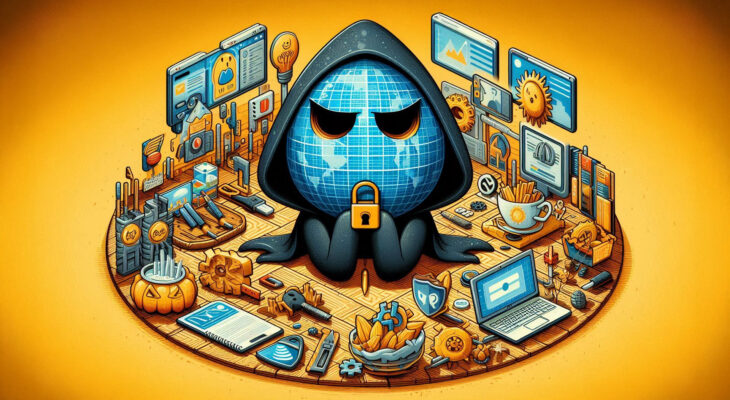These days, Virtual Private Networks (VPNs) are widely used to protect online privacy, especially for political dissidents and alternative news outlets who rely on secure communication to share sensitive information.
A VPN encrypts your internet connection and hides your IP address, making it harder for third parties to track your online activities.
But not all VPNs are created equal.
Some have security weaknesses that can leave users exposed. If you’re new to VPNs, this guide will walk you through the ten most common security issues to watch out for when choosing a VPN, ensuring you make an informed decision to safeguard your privacy.
Check out our article: “You Can’t Trust ALL VPNs Equally!”
The Top 10 VPN Security Weaknesses
- Weak Encryption Protocols
Encryption is the backbone of a VPN’s security, but not all encryption is robust. Some VPNs use outdated protocols like PPTP or L2TP/IPSec, which are easier for hackers or governments to crack.
For beginners, think of encryption like a lock on your front door—older locks are easier to pick. Look for VPNs that use modern standards like OpenVPN or WireGuard, which offer stronger protection against unauthorized access. - DNS Leaks
When you use a VPN, your DNS requests (which translate website names into IP addresses) should go through the VPN’s encrypted tunnel.
A DNS leak happens when these requests bypass the VPN and go to your Internet Service Provider (ISP) instead, exposing the websites you visit. This is like sending a letter through a secure courier but accidentally leaving the address visible. Choose a VPN that offers DNS leak protection and test it regularly to ensure your data stays private. - IP Leaks (IPv4/IPv6/WebRTC)
A VPN should mask your real IP address, but leaks can occur, especially with IPv6 (a newer and more trackable internet protocol) or WebRTC (a browser feature).
These leaks can reveal your true location to websites or trackers. Imagine wearing a disguise but accidentally showing your ID card.
To avoid this, select a VPN that supports IPv6 and disables WebRTC by default, or use a browser that allows you to turn it off. - Logging of User Data
Some VPNs claim to have a “no-logs” policy but still store information like your IP address, connection times, or browsing history. This data could be handed over to authorities or stolen by hackers.
For dissidents and journalists, this is a major risk. Always research a VPN’s logging policy and look for independent audits that verify their claims.
A trustworthy VPN will prioritize your anonymity. - Unreliable Kill Switches
A kill switch cuts off your internet if the VPN connection drops, preventing your real IP from being exposed. A faulty kill switch, however, can fail to act in time, leaving your data vulnerable.
Think of it as an emergency brake that doesn’t work during a crash. Ensure your VPN has a reliable kill switch and test it to confirm it works as promised. - Server Security Flaws
VPN servers that run outdated software or lack proper security can be hacked, allowing attackers to intercept your data.
For beginners, this is like renting a safe deposit box in a poorly guarded bank. Choose a VPN provider that regularly updates its servers and uses strong security measures to protect them. - Man-in-the-Middle (MITM) Attacks
Weak authentication or poorly implemented certificates can let attackers pose as your VPN server, intercepting your data. This is like someone pretending to be your trusted courier and stealing your mail.
Look for VPNs with robust certificate validation and authentication protocols to prevent such attacks. - Malware in VPN Apps
Some free VPN apps, especially from untrustworthy providers, may contain malware or trackers that spy on your device.
This is particularly dangerous for dissidents who need to avoid surveillance. Stick to reputable VPNs with good reviews and avoid free services that seem too good to be true. - Jurisdiction Risks
The country where a VPN is based matters. If it’s in a nation with strict surveillance laws or part of intelligence-sharing alliances (like Five Eyes), your data might be accessed by authorities.
For example, a VPN in a privacy-unfriendly country (UK, Israel, etc.) is like storing your secrets in a government office. Opt for VPNs based in privacy-friendly jurisdictions like Switzerland or Panama instead. - Poor Session Data Handling
If a VPN doesn’t securely manage session data (like encryption keys), attackers could decrypt your past or current sessions. This is like leaving your house keys in an unlocked drawer.
Choose a VPN that uses frequent key rotation and secure session management to minimize this risk.
Maintaining Great VPN Security is Crucial
For political dissidents and alternative news outlets, a reliable VPN is a lifeline for secure communication. However, secure VPNs are also vital for normal users who don’t want their banking or crypto information stolen or disclosed, or who might hold non-mainstream political/social opinions they want to keep private and away from government snooping.
By understanding these common VPN weaknesses – weak encryption, leaks, logging, and more, you can make a smarter choice when selecting Virtual Private Network providers.
Research providers thoroughly, prioritize those with audited no-logs policies, modern encryption, and robust security features, and always test your VPN to ensure it’s TRULY protecting you.
Your privacy and safety depend on it.

